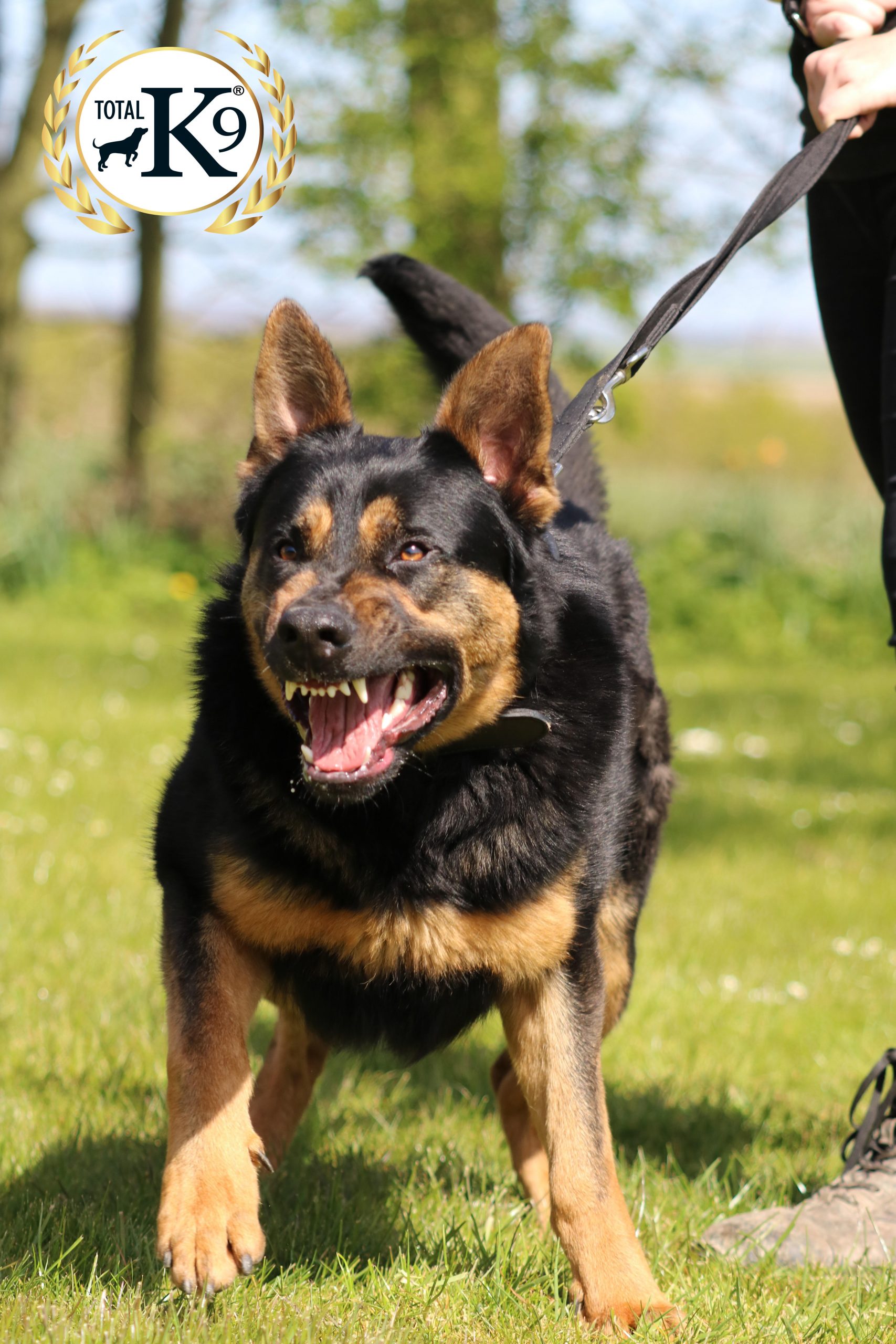Protection dogs don’t need affection
This is one of the most damaging myths out there. Though protection dogs may look fierce and have a job to do, that does not mean that they don’t still make affectionate and loving companions. Just like any other domestic pet, your personal protection dog will form a strong emotional bond with you, and needs to be shown love and care to reinforce this.
Only large dogs make good protection dogs
It is easy to conclude that larger dogs are stronger and therefore make better protection dogs. From our years of working with different breeds and training them based on their personalities and dispositions, we can tell you that this doesn’t stand up. This misconception can lead excellent breeds such as bulldogs and bull terriers to be overlooked for training, even when they show great potential.
Protection dogs bark all the time
When guard dogs appear in films they are always snarling or barking. In reality a protection dog is trained to only bark when absolutely necessary – to warn off an intruder or intimidate an attacker. In fact, our protection dogs are so well trained that they are quieter than the average pet dog on a day to day basis.
Children can’t be left alone with protection dogs
This simply could not be further from the truth. Our protection dogs are trained to protect your whole family, and to adopt young children and babies as one of their own pack. It is important to supervise young children around animals of any kind, but a well-trained protection dog poses no additional threat to children.
All protection dogs are aggressive
Unfortunately, some trainers of guard dogs focus only on teaching their dogs to be aggressive at the expense of all other skills. Far from being out of control, a good protection dog is able to exercise incredible control over it’s own behaviour. Aggression is only shown when it senses that it’s owner or family may be at immediate risk, and even then a show of aggression will be used first before a physical attack.

